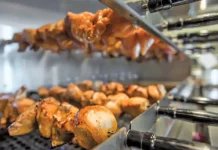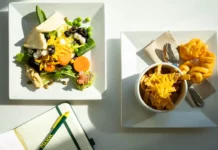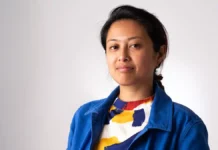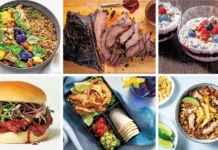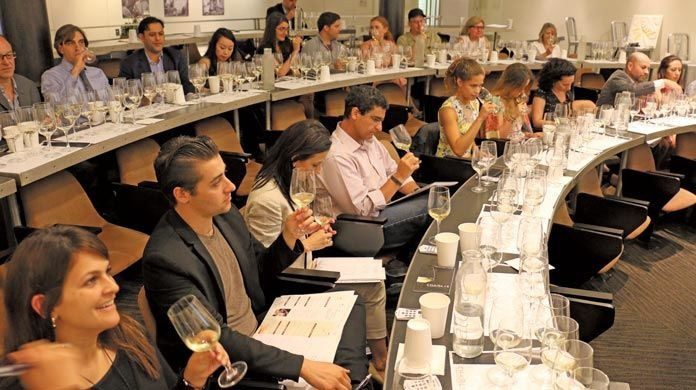
OK, so you know a lot about wine and would love to become a sommelier. But do you also have the knowledge of the thousands of wines that are out there, how to make a wine list, running a business and being a salesperson, all integral parts of the role of today’s sommelier? Scott Carney at the International Culinary Center® (ICC®) in New York City can show you how.
Maybe it was his experience as a master sommelier. Or in restaurant management, including finance and operations. But it all came together for his lucky students at ICC when he was asked to put together a curriculum on becoming a wine expert. Today he is director of the Intensive Sommelier Training program and Dean of Wine Studies for ICC’s program on both coasts.
Starting out in the foodservice industry, Carney recognized a need to further his business skills, so he enrolled in the Stern School of Business at New York University and after a semester in France at Hautes Études Commerciales de Paris, graduated with an MBA in Finance.

He then joined the Gotham Bar & Grill as business manager and spent 10 years overseeing affairs as the restaurant earned three consecutive three-star reviews from The New York Times. It was during his tenure at Gotham that Scott began his study for the title of Master Sommelier, which he earned in 1991.
Carney said he’s seen a lot of changes in the industry in his years in the business. “Globalization has changed everything,” he explained. “In 1991 I didn’t know that much about Austria. Wine by the glass is the choice in most of the restaurants that are really aware. And the same can be said as we’ve moved forward to assyrtiko from Greece. There’s something always new on the horizon as people try to get a toe-hold on what is probably the most prominent and lucrative market, which is the United States.”
Carney noted that what he tries to do at the ICC is to keep people attuned to the possibilities of finding employment in the industry. “Whether it’s from a family background in Eastern Europe or a particular additional language that you speak, you’ve got to develop something that makes you stand out. And through our lecture program, we hope that a light goes on at some point through the 50 classes where you say, ‘That’s the direction that makes sense for me. These are my previous work skills, or this is a second language I speak, or whatever it is. Then you start to chart a course for yourself using your imagination.”
Are these skills he can teach or do you have to be born with it? “The claim that with more papillae on their tongue, women tend to be better tasters than men, or super tasters – those things all basically go away at the end of the day. There are some people who are gifted. There are other people who, just on their sheer force of will and practice and tasting, create a means by which to analyze wine and all of its component pieces,” he pointed out.
He acknowledged that the school likes to think about it like serving a tennis ball or driving a golf ball. “You develop a mechanism for doing it in a fluid way, such that you would achieve the desired result. Or moving over to music, it’s playing the scales and doing the different things to keep limber and conscious, exacting a kind of discernment as you perceive these things that you put in your mouth,” he explained.
The key is to keep doing it. “And that’s one of the challenges of the courses in this program. We can’t pretend. With as many wines as we show these people, they’re not going to be as proficient as when they have another 25-50 thousand wines under their belt. But we can show them what we believe to be the benchmark, or iconic wines, from which they can begin making some valued judgments about what to be looking for,” Carney asserted.
“But what makes this curriculum separate, makes it unusual, makes it unique, is that this is a program that has passed muster with the Boards of Education both in California and in New York,” he stated. “We’ve presented to our students a 50-class 200-hour program which earns a degree. Our program is judged by our ability for people to enter the industry in a very fixed period of time. It is effectively a vocational school. And so in the instance of wine, I’m sure a few eyebrows were raised when we talked about sommelier as a vocation. But to the extent that sparkling wine is a manual endeavor to be opened safely, and decanting another manual procedure, there was enough material there to convince people that this is a skill that can be learned and a business into which people can enter with adequate training.”
But does it really prepare students to get a job as a sommelier? Can you truly leave the class and feel as though you are ready to be hired as a wine expert? “I like to joke with the class that it’s one thing to be able to put your nose into a glass and say, that’s Meursault, and entirely another to run a 25% beverage program on a $3 million beverage program. The school is answering to the needs of the hiring community, which is to say that people need to know how to build a wine list, how to price things out. There’s a lot more basic algebra and math involved in it right now, so you have to be able to not only be a good taster, but also a good salesperson and a good business person. That’s what we teach.”
You have to know wine, but you also have to know people. “When you’re talking to people, trying to convince them, it takes a certain kind of confidence, knowing when to step in and take control, when to step back and let these people discover things for themselves. But it’s exciting and what I find so marvelous about it is that there are people who come from other industries where they’ve been in banking or IT and then they decide, I want to follow my passion. I want to be a sommelier. Let me put a little money down and explore this,” Carney said.
There all kinds of students, of course. “The genetic DNA of this program is intensive training. Some people join up to learn a little bit more about wine and will move on not only through the first two levels that we oversee but to the advanced and the masters level – usually only a small fraction of our students. But we do have those who have passed the advanced class, which is the third level, so that they’re masters’ candidates. And they’re realizing their dream of becoming a master sommelier. But there are other people who are absolutely satisfied with the package of information we provide and the success they have at the certified level.”
So what are some of the avenues you may be able to travel, once you complete this program? Some graduates have gone on to run wine companies, including a former student who now has a significant position with Vineyard Brands. Another has opened up a wine shop, while others opened up wine bars, and one even moved to California to try to become a tasting coordinator at one of the wineries.
Carney does open houses for potential students to come in and see what’s available. It’s not a program for everyone, he acknowledged. “We’re talking the intensive study that we all recognize needs to be done, whether you like the idea of learning in this fashion. There are many different paths to learn. This happens to be one. Some people really like the structure of a school setting and we benefit from word of mouth from students that really like this way of learning,” he said.
“Our goal? The maximum education in the minimum amount of time. International Culinary Center’s first-rate education is designed for real-world achievement,” he concluded. “It’s really all up to your imagination. There are a lot of ways in which you can create wealth and be eminently employable.”
Click here to learn more about ICC’s Intensive Sommelier Training program.


















